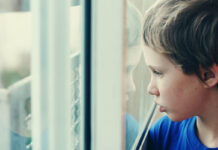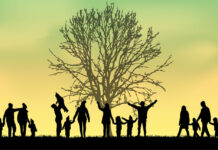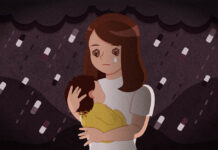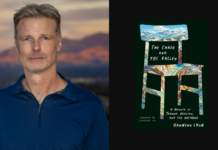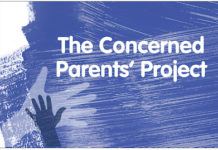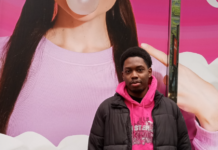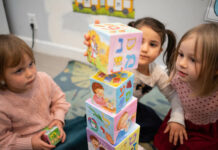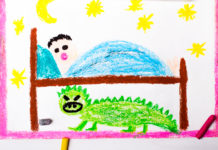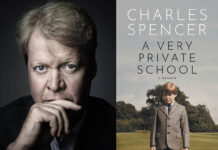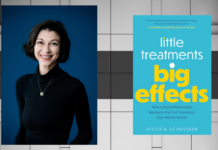Interview: The Need for Trauma-Informed Schools
CTIPP Executive Director Jesse Kohler answers our questions about the organization's new report and what the findings mean for families and communities.
Engaging “Madness”: A Guide for Significant Others and Families
Using personal stories from my own family, my new booklet Engaging 'Madness' paints a clear picture of what an alternative healing journey outside the biomedical paradigm can look like.
As a Psychologist, I’ve Seen Many Children Misdiagnosed as Autistic—It’s a Clinical Catastrophe
The ASD diagnosis glosses over the many developmental specifics that might underlie a child’s challenges related to social communication.
SAFE: Survivors And Families Empowered—An Update
We hope to combat the increasing reliance on force, too often used with the justification “for your own good.”
Enlarging the Treatment Lens for Postpartum Depression
Drugs, social support, placenta encapsulation: How can we approach the specter of postpartum depression?
The Path from Trauma to The Power of Nature: An Interview with Banning Lyon
Our guest today is Banning Lyon, author of The Chair and The Valley: A Memoir of Trauma, Healing, and The Outdoors. An account of...
The Concerned Parents’ Project: 31 Questions
The Concerned Parents’ Project grew out of the idea that there may be parents out there who are confused and bewildered by the mixed messages on what it is to have normal and healthy childhood experiences. We posted a new question and answer for parents each day in March.
The False Memory Syndrome at 30: How Flawed Science Turned into Conventional Wisdom ...
Soon after states finally began providing adults who remembered childhood abuse with the legal standing to sue, the FMSF began waging a PR campaign to discredit their memories—in both courtrooms and in the public mind.
The Birth of The “Just Stop It” Movement: A Family’s Journey Through Mental Health...
Will was plunged into an extreme state following exposure to a synthetic street drug, which led to repeat hospitalizations and psych drugs.
Reflections on the Silicon Valley Teen Suicides-by-Train: Fifteen Years Later
A psychiatrist and mom reflects on teen suicide clusters in Palo Alto and discusses alternative ways to address adolescent mental health.
Engaging Voices, Part 1: Validating The Arrival of My Wife’s First ‘Alters’
Sam Ruck shares his third excerpt from his book Healing Companions, which describes his life with, and love for, his wife and her “alters.”
The Nurtured Heart Approach Goes Mainstream: Research and Experience Support “Celebrating Greatness in Every...
The Nurtured Heart Approach represents a massive shift in thinking—about schooling, about children and how to raise them, about how we regard those with intensity, and about the medical model pathologizing them.
Giving Caregivers a Platform: Sam, Husband of Ka’ryn Marie
For many caregivers who assist their loved ones, the journey involves navigating the medical system and its many challenges. This time, the journey takes...
The Note
I’ve helped dozens of my students through tough times and suicidal thoughts. But my own child? How do I handle THIS?
Monarch eTNS Inspires “Stop the Psychiatric Abuse of Children!” (SPAC!)
The FDA approval of the Monarch eTNS device is the latest form of psychiatric-inspired child abuse. If not stopped, it will afflict millions of children in unimaginably damaging ways. It has inspired us to form Stop the Psychiatric Abuse of Children (SPAC!) a new international advocacy organization.
Adverse Childhood Experiences: When Will the Lessons of the ACE Study Inform Societal Care?
The ACE study tells of how adverse childhood experiences increase the risk of psychological and physical problems in adulthood. When will we start incorporating these findings into public health policy and medical care?
Charles Spencer’s Story of Boarding School Abuse Is Haunting
But parents are still sending children away to board, and it’s still dangerous.
Problem-Solving Through Skills-Building: Motivating Kids to Change
Children can overcome all sorts of difficulties by learning specific behavioural or emotional skills with the help and support of their social network.
Interview: Abuse and Neglect at Private “Troubled Teen” Centers
Parents, beware: Disability rights lawyer Diane Smith Howard shares disturbing findings on conditions at youth residential treatment facilities.
Giving Caregivers a Platform: Elianna, Mother of Brandon
An interview with Elianna, who lives in Colorado with her son, Brandon, 34. His many diagnoses and misdiagnoses include autism and schizophrenia.
Medical Journals Refuse to Retract Fraudulent Trial Reports That Omitted Suicidal Events in Children
The published articles underreported suicide-related events and provided false claims that the drugs were effective.
Interview: How Does Climate Change Affect Youth Mental Health?
Psychiatric epidemiologist Jennifer Barkin talks about her research on the traumatizing effects of extreme weather events on youth and how caregivers can help them build resilience.
Challenging Western-Centric Child Psychology: An Interview with Nandita Chaudhary
Ayurdhi Dhar interviews Nandita Chaudhary about children’s lives across cultures, the problems with global aid agencies and their interventions, psychology’s bias in the study of children, the limits of attachment theory and more.
Giving Caregivers a Platform: Leigh, Mother of Melissa
This is the story of a young woman who suffered through the agony of "kindling" and other drug-related harm, eventually dying by suicide. This is also the story of her mother’s path ahead.
Conveying Hope, Empowering Teens: An Interview With Jessica Schleider
Clinical psychologist Jessica Schleider is founding director of the Lab for Scalable Mental Health, researching single-session interventions.



